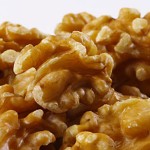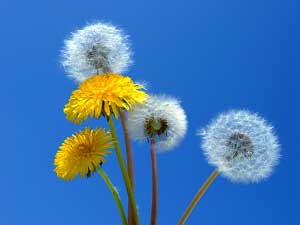You are not the only one if your allergies are still acting up. Here are 8 tips that acupuncturists recommend to help ease your allergies:
http://acutakehealth.com/8-self-care-tips-from-acupuncturists-for-late-spring-allergies
You are not the only one if your allergies are still acting up. Here are 8 tips that acupuncturists recommend to help ease your allergies:
http://acutakehealth.com/8-self-care-tips-from-acupuncturists-for-late-spring-allergies
Spring is around the corner which means we will start seeing more and more patients entering our office with itchy eyes and runny noses. The sad news is there is no cure for allergies. A seasonal allergy is a genetic disease of the immune system. But even before you think about medications, it is really critical that you go into the allergy season with a healthy diet. By adding these 5 foods to your diet, you can lessen symptoms.
Walnuts
Studies show that a diet high in antioxidants and omega-3s can ease seasonal allergy suffering. Allergies cause inflammation of the tissues and lining in the nose. Eating foods that decrease inflammation can bring relief. Nuts are a great food for fighting inflammation, especially walnuts. They’re a healthy snack and are high in magnesium and vitamin E. Magnesium protects against the wheezing that accompanies asthma, and vitamin E boosts immunity while simultaneously protecting the body from free radicals, which cause tissue damage and inflammation
Apples
An apple a day can keep allergies away! Researchers found that people whose diets incorporated apples as a staple had greater protection against both allergies and asthma. Apples are rich in quercetin — a flavonoid with anti-inflammatory properties. Much of the benefits come from the peels, which are also packed with antioxidants called polyphenols, which prevent cellular damage.
Fish
Omega-3 fatty acids in seafood have natural anti-inflammatory effects that boost the immune system — and most allergies happen when your immune system is out of whack. Fish can actually help dry skin and eczema as well. Wild Alaskan Salmon is the best pick because it is low in pollutants and has the most nutrients.
Red Grapes
The skin of red grapes is high in antioxidants and resveratrol — an anti-inflammatory compound. Eating foods high in antioxidants can reduce inflammation in your entire body. Other foods high in antioxidants include berries, legumes and potatoes. Grapes also contain flavonoids that can also lower the bad cholesterol levels and relax blood vessels.
Tomatoes
Tomatoes are high in vitamin C and a good choice for the sneezing season. Studies show tomatoes can build your tolerance against asthma and respiratory issues. Vitamin C is an immune system booster and natural antihistamine, which suppresses swelling.
For more information: http://healthland.time.com/2012/03/29/5-foods-to-help-fight-spring-allergies/#ixzz2LUGw1a44
 If you are an allergy sufferer, I’m sure you are getting quite pumped for the Spring season! Although having a wonderfully mild winter this year was great, it does mean allergy season could be at an all time worse. That being said, if you battle allergies, now is the time to start your acupuncture treatments.
If you are an allergy sufferer, I’m sure you are getting quite pumped for the Spring season! Although having a wonderfully mild winter this year was great, it does mean allergy season could be at an all time worse. That being said, if you battle allergies, now is the time to start your acupuncture treatments.
According to Oriental Medicine, allergic rhinitis is related to Wind and a deficiency of the Protective Wei Qi. Wei Qi is the Qi, or energy, that flows at the surface of the body as a protective sheath and is responsible for resistance to colds and other respiratory infections. Wei Qi is similar to your immune system. People with a deficiency of Wei Qi catch colds easily and are more susceptible to allergens.
When treating with acupuncture, underlying imbalances within the body are addressed and a treatment plan is developed to relieve the acute symptoms of allergic rhinitis while also treating the root problems that are contributing to the body’s reaction to allergens. I recommend a series of 4 weekly treatments before allergies kick into full gear and then follow up sessions when needed throughout the season.
Here are some foods to include in your diet to help with Seasonal Allergies:
Ginger: Ginger is a natural antihistamine and decongestant. It may provide some relief from allergy symptoms by dilating constricted bronchial tubes.
Apples: Some foods contain the flavonoid quercetin that can cross-react with tree pollen. Quercetin can reduce allergic reactions by having an antihistamine effect. It also decreases inflammation. Quercetin occurs naturally in certain foods, such as apples (with the skin on), berries, red grapes, red onions, capers, and black tea.
Carrots: Carotenoids are a family of plant pigments that include beta-carotene. A lack of carotenoids in the diet is thought to promote inflammation in your airways. Good sources of carotenoids include apricots, carrots, pumpkin, sweet potato, spinach, kale, butternut squash, and collard greens.
Omega-3: Omega-3 essential fatty acids can counter the formation of chemicals that cause inflammation of the air passages. Good natural sources include flaxseed oil and salmon.
Yogurt: Food sensitivities seem to be connected with seasonal allergies. In a study conducted at the University of California, San Diego School of Medicine, patients who were fed 18 to 24 ounces of yogurt a day experienced a decline in their environmental allergic symptoms by 90 percent.
Fiber: A healthy and active colon can decrease food sensitivity, which, in turn, can lighten the burden on your immune system and may reduce the impact of seasonal allergies. For maximum colon health, increase the fiber in your diet.
 The early signs of Spring are starting to emerge…the crocus are peaking their heads above the ground and the daffodils look like they are ready to come full bloom any day now. Our days are gradually getting warmer and now that the sun will stay out longer we can only hope that winter is finally behind us! While the best thing about spring may be open to debate, most people will agree that the major negative that comes with spring is Seasonal Allergies. As we celebrate the warmer weather and outdoor activities, many will start to suffer with itchy eyes, sneezing, runny noses, headaches and fatigue.
The early signs of Spring are starting to emerge…the crocus are peaking their heads above the ground and the daffodils look like they are ready to come full bloom any day now. Our days are gradually getting warmer and now that the sun will stay out longer we can only hope that winter is finally behind us! While the best thing about spring may be open to debate, most people will agree that the major negative that comes with spring is Seasonal Allergies. As we celebrate the warmer weather and outdoor activities, many will start to suffer with itchy eyes, sneezing, runny noses, headaches and fatigue.
Prescriptions and over-the-counter medications may provide temporary relief, but none help overall health and prevention of allergies. While drugs may help to put the symptoms at bay, many tend to come with a host of other side effects. But the good news for allergy sufferers is there are natural remedies that can help. Acupuncture can not only resolve the symptoms of allergies but also help the body come into balance by treating the underlying condition causing your allergies and thus improving overall health.
Allergies are a sign of imbalance in the immune system. Acupuncture effects every major system of the body including the circulatory, cardiac, endocrine, genitourinary and the immune system. The goal of acupuncture is to balance the body and bring it back to homeostasis. Balancing and strengthening the body can be the best thing to decrease and even rid oneself of seasonal allergies altogether.
In addition to acupuncture, other natural tips include:
Enjoy the warmer temperatures and outdoor activities but remember you don’t have to suffer this season with allergies. Acupuncture is a great natural solution and the effects are long lasting. Happy Spring!